Transforming Healthcare with AI Chatbot Solutions
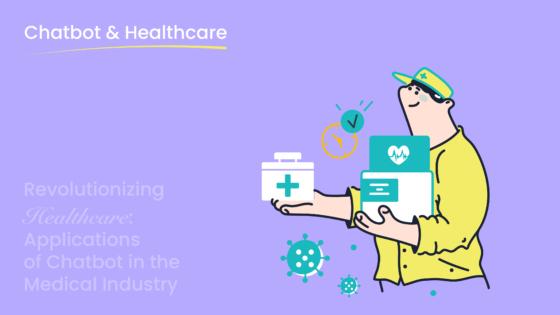
AI chatbot solutions are transforming the healthcare industry, driving innovation and improving patient experiences. These tools streamline processes and enhance efficiency, addressing challenges in patient care and administration. For instance:
- The global generative AI healthcare market is set to grow from $1.5 billion in 2023 to $9.5 billion by 2032, showcasing rapid adoption.
- Chatbots are projected to automate 73% of healthcare administrative tasks by 2024, freeing resources for critical care.
- AI-driven technologies could save the industry $3.6 billion annually, proving their financial value.
Sobot's chatbot solution for healthcare industry stands out by offering reliable, 24/7 support and boosting operational efficiency. It’s a game-changer for modern healthcare systems.
Understanding Chatbot Solutions for the Healthcare Industry
What Are Healthcare Chatbots?
Healthcare chatbots are AI-powered tools designed to interact with users, such as patients or healthcare professionals, through natural language processing. These chatbots simulate human-like conversations to provide information, answer questions, and perform tasks. For example, a chatbot on a telehealth platform can pre-screen patients, collect their symptoms, and schedule consultations with specialists.
The market for healthcare chatbots has grown significantly. In 2018, it was valued at $116.9 million, and by 2026, it is expected to reach $345.3 million, growing at a compound annual growth rate (CAGR) of 14.5%. This growth reflects the increasing reliance on AI-driven solutions to improve healthcare delivery.

Sobot's chatbot solution for healthcare industry exemplifies this innovation. It offers multilingual support, operates 24/7, and integrates seamlessly with various platforms. These features make it an essential tool for modern healthcare systems.
The Growing Importance of Medical AI Chatbots
Medical AI chatbots are becoming indispensable in healthcare. They address critical challenges, such as reducing administrative burdens, improving patient engagement, and enhancing access to care. The global market for medical AI chatbots is projected to grow from $230.28 million in 2023 to $690.31 million by 2030. By 2031, it is expected to reach $807.53 million, highlighting their increasing adoption.
Clinicians worldwide anticipate a rise in chatbot usage. In Europe, 48% of clinicians expect more patients to rely on chatbots for treatment management by 2031. Similar trends are seen in North America (42%) and Asia-Pacific (53%). These tools are not just limited to basic tasks; they also assist in chronic disease management, mental health support, and even triage.
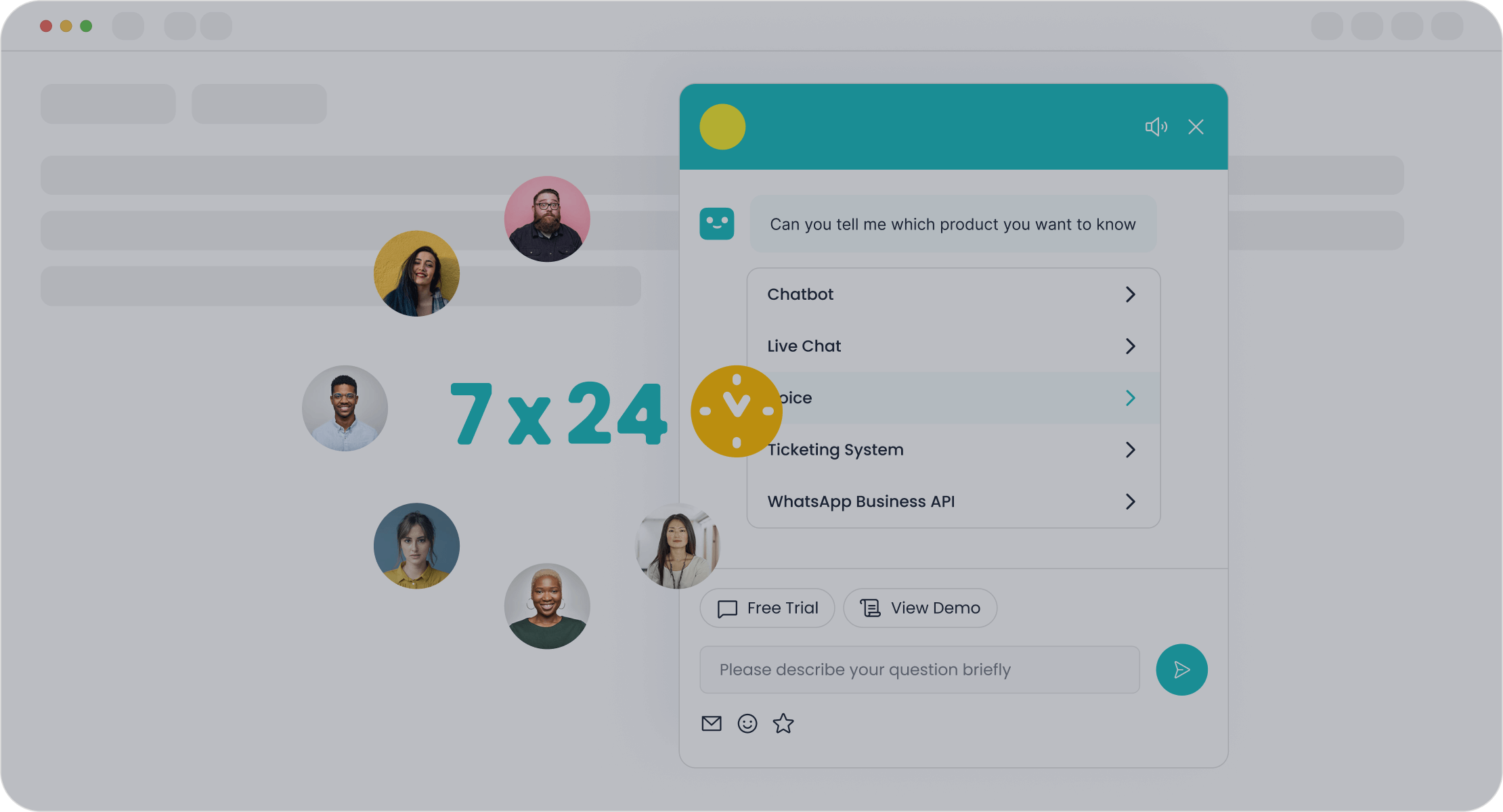
Sobot's medical AI chatbots stand out by offering proactive messaging and real-time intent assistance. These capabilities improve patient outcomes and streamline healthcare operations, making them a valuable asset for providers.
How Sobot's Chatbot Enhances Healthcare Interactions
Sobot's chatbot solution for healthcare industry transforms how providers and patients interact. It automates routine tasks, such as appointment scheduling and symptom checking, allowing healthcare professionals to focus on critical care. The chatbot's multilingual support ensures accessibility for diverse patient populations, while its 24/7 availability guarantees uninterrupted service.
One of its standout features is its ability to integrate with existing systems. For instance, it can pull data from electronic health records (EHRs) to provide personalized responses. This integration enhances the accuracy and relevance of the information shared with patients. Additionally, Sobot's chatbot uses a no-coding-required interface, making it easy for healthcare organizations to deploy and customize.
By adopting Sobot's chatbot, healthcare providers can improve efficiency, reduce costs, and enhance patient satisfaction. Its ability to handle high volumes of inquiries without compromising quality makes it a game-changer in the industry.
Key Benefits of AI Chatbot Solutions in Healthcare

Improving Patient Engagement and Satisfaction
AI chatbots are revolutionizing patient engagement by making healthcare more accessible and responsive. These tools provide instant answers to patient queries, ensuring you receive timely and accurate information about your health. For example, chatbots can guide you through symptom checks, helping you decide whether to seek medical attention. They also send medication reminders, ensuring you stay on track with your treatment plan.
Studies show that active patient engagement improves care quality and satisfaction. For instance, a systematic review titled Engaging Patients to Improve Quality of Care found that digital tools like chatbots enhance participation, leading to better health outcomes. Sobot's medical AI chatbots take this a step further by offering multilingual support and proactive messaging, ensuring you feel heard and valued. These features make healthcare interactions seamless and satisfying.
Streamlining Administrative Tasks
Administrative tasks often burden healthcare providers, but chatbots can handle these efficiently. They automate appointment scheduling, manage billing inquiries, and even assist with prior authorizations. This reduces the workload on staff, allowing them to focus on patient care.
For instance, chatbots can manage multiple appointment requests simultaneously, minimizing wait times for patients. They also streamline documentation processes, ensuring accurate and timely record-keeping. Sobot's healthcare chatbot integrates seamlessly with electronic health records (EHRs), enabling smooth data management. This not only improves operational efficiency but also enhances the overall patient experience.
Supporting Clinical Decision-Making
AI chatbots are valuable tools for supporting clinical decision-making. While they don't replace human expertise, they provide insights that help clinicians make informed decisions. Research from Stanford Medicine highlights that physicians assisted by AI chatbots perform better in treatment planning and clinical judgment.
Sobot's medical AI chatbots excel in this area by offering real-time intent assistance and leveraging advanced algorithms to analyze patient data. These capabilities ensure that healthcare providers have the information they need to deliver accurate and effective care. By integrating with existing systems, Sobot's chatbot enhances decision-making processes, ultimately improving patient outcomes.
Cost Efficiency and 24/7 Availability
AI chatbots revolutionize healthcare by offering cost-effective solutions and round-the-clock availability. These tools reduce operational expenses while ensuring patients receive uninterrupted support. By automating routine tasks, chatbots free up resources, allowing healthcare providers to focus on critical care.
One of the most significant advantages of AI chatbots is their ability to handle high volumes of inquiries simultaneously. They answer routine questions instantly, eliminating the need for additional staff. This efficiency leads to substantial cost savings. For example, chatbot implementation can reduce customer support costs by up to 70%. Additionally, response times improve by over 80%, ensuring patients receive timely assistance.
Did you know? Chatbots answer 79% of routine queries, reducing the workload on human agents. This automation improves first-call resolution rates by 20%, increasing from 50% to 70%.
The financial benefits extend beyond cost savings. Patients prefer chatbots for their speed and convenience. A recent study revealed that 62% of customers choose chatbots over human agents for quick answers. This preference reduces call abandonment rates, which often reach 53% after a 10-minute wait.
| Metric | Value |
|---|---|
| Percentage of routine queries answered | 79% |
| Average drop in customer support costs | 30% |
| Improvement in first-call resolution rate | 20% increase (from 50% to 70%) |
| Customers preferring chatbots over agents | 62% |
| Customers abandoning calls after 10 mins | 53% |
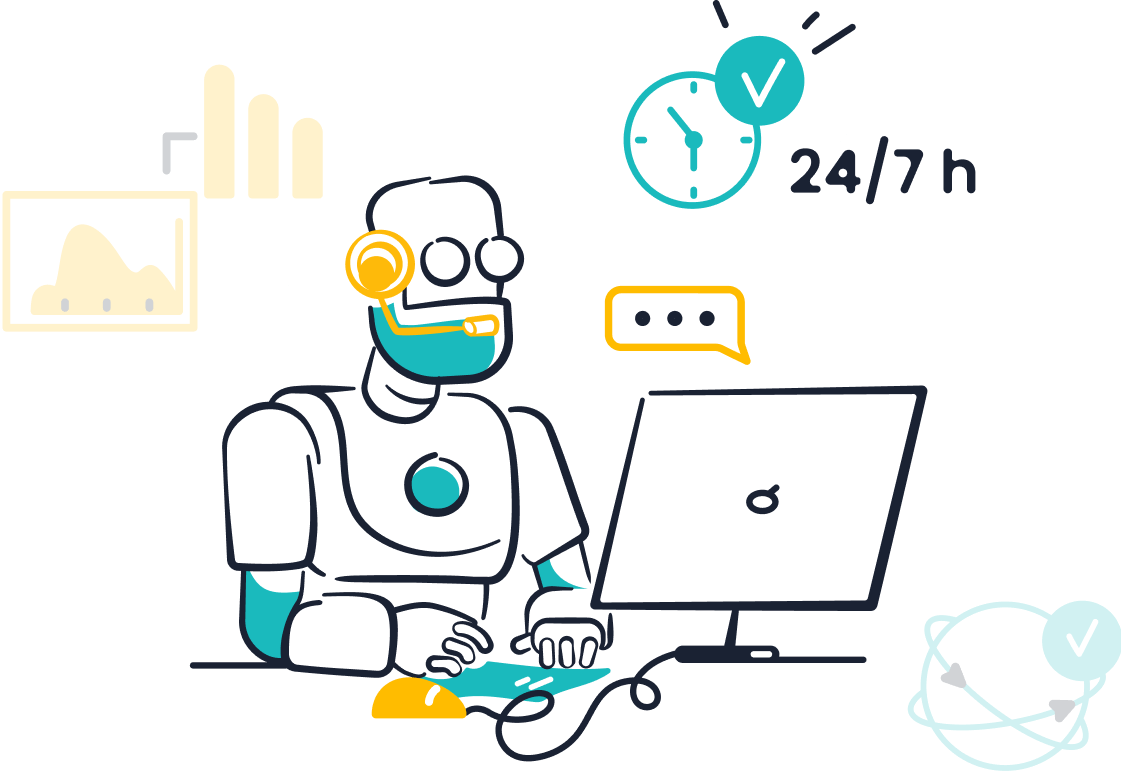
Sobot's AI chatbot takes this efficiency to the next level. It operates 24/7, ensuring patients can access support anytime, anywhere. This constant availability eliminates long wait times, enhancing the overall patient experience. By integrating seamlessly with healthcare systems, Sobot's chatbot provides accurate, real-time responses, making it an invaluable asset for modern healthcare providers.
Real-World Applications of Healthcare Chatbots
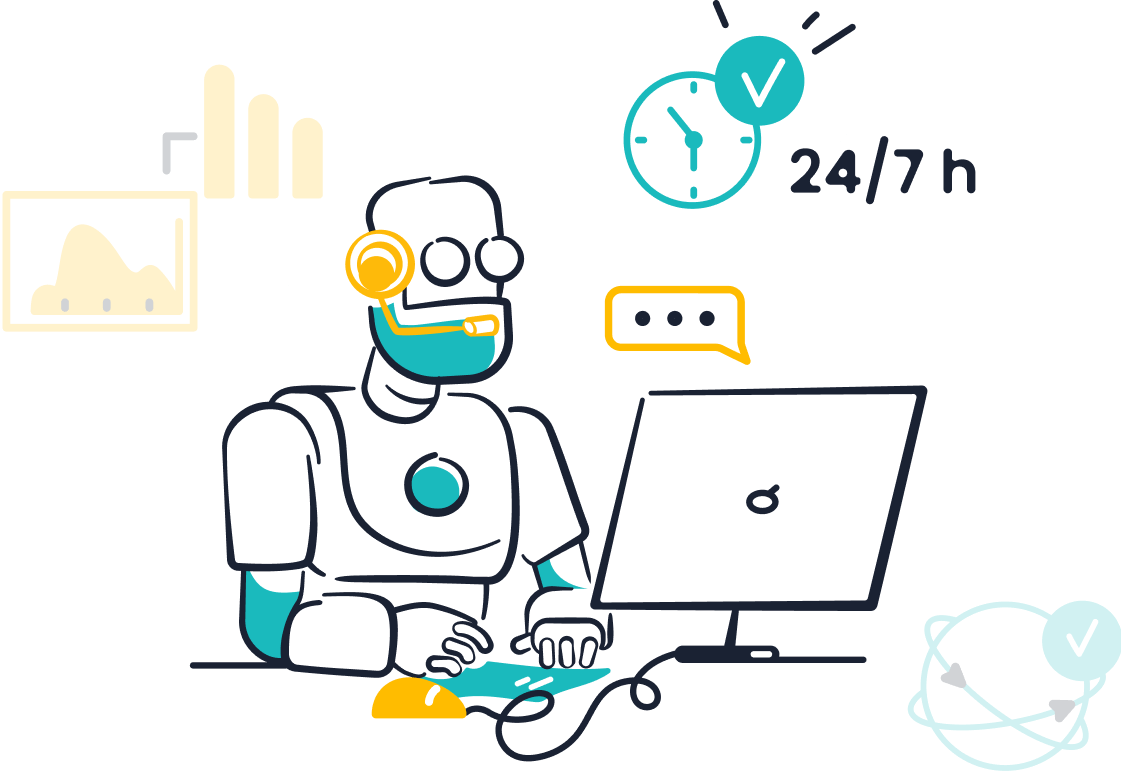
Appointment Scheduling and Reminders
Healthcare chatbots simplify appointment scheduling, making it easier for you to book consultations at your convenience. These chatbots operate 24/7, allowing you to schedule appointments even outside office hours. They also handle multiple requests simultaneously, reducing wait times and improving efficiency. For example, chatbots can sync with calendars, check availability, and confirm bookings instantly. This automation ensures you never miss an appointment.
Automated reminders are another key feature. Chatbots send notifications about upcoming appointments, reducing no-show rates and optimizing schedules. Studies show that these reminders improve patient attendance significantly. Additionally, chatbots collect data on booking patterns, helping healthcare providers enhance their services.
| Feature | Description |
|---|---|
| Schedule Appointments Easily | Chatbots manage bookings, sync with calendars, and send reminders, reducing no-shows. |
| 24/7 Booking Assistance | Provides round-the-clock support for appointment scheduling. |
| Automated Reminders | Sends reminders automatically, ensuring better patient attendance. |
Symptom Checking and Triage
Chatbots play a vital role in symptom checking and triage. They assess your symptoms and provide initial guidance, helping you decide whether to seek medical attention. This reduces unnecessary hospital visits and ensures timely care for urgent cases. For instance, a healthcare chatbot might ask about your symptoms, analyze the information, and recommend the next steps.
Data shows that 46.4% of symptom assessments occur outside office hours, highlighting the value of 24/7 availability. Among users, 27.4% are advised to seek care the same day, while 23.6% receive guidance for follow-up within 2–3 days. These insights demonstrate how chatbots enhance access to care and improve decision-making.
| Metric | Value |
|---|---|
| Total symptom assessments | 26,646 |
| Assessments completed outside office hours | 46.4% |
| Advised to seek care same day | 27.4% |
| Advised to seek care within 2-3 days | 23.6% |
Mental Health Support and Therapy Assistance
Mental health support is another area where chatbots excel. These tools provide immediate resources for managing stress, anxiety, and depression. For example, AI chatbots like Woebot and Wysa deliver cognitive behavioral therapy (CBT), helping you cope with mental health challenges. Research shows that these chatbots effectively reduce symptoms of depression and anxiety.
Chatbots also offer virtual counseling, making mental health care more accessible. They connect you to helplines or counselors during crises, ensuring timely intervention. By providing personalized support, chatbots empower you to take control of your mental well-being.
Tip: Chatbots are available 24/7, making them a reliable resource for mental health support anytime you need it.
Chronic Disease Management and Monitoring
Managing chronic diseases requires consistent monitoring and timely interventions. AI-powered tools, including medical AI chatbots, are transforming how healthcare providers approach this challenge. These chatbots offer remote patient monitoring capabilities, enabling you to track your health in real time. For example, they can monitor vital signs, detect abnormalities early, and provide tailored recommendations based on your data. This proactive approach improves patient outcomes and reduces hospital visits.
Remote patient monitoring tools also enhance accessibility. They allow you to manage your condition from home, eliminating the need for frequent clinic visits. By analyzing large datasets, AI identifies patterns that help healthcare providers deliver personalized therapies. This level of precision is crucial for managing complex conditions like diabetes, hypertension, and heart disease.
Sobot's chatbot excels in chronic disease management. It integrates seamlessly with healthcare systems, offering real-time monitoring and instant feedback. Its multilingual support ensures you receive accurate information in your preferred language. With 24/7 availability, Sobot's chatbot empowers you to take control of your health anytime, anywhere.
How Sobot's Chatbot Drives Efficiency in Customer Contact Centers
Sobot's chatbot revolutionizes customer contact centers by improving efficiency and enhancing user satisfaction. It reduces inbound discussion volume by automating routine queries, allowing agents to focus on complex issues. This automation increases agent efficiency by 30%, ensuring faster problem resolution.
The chatbot delivers accurate responses, achieving an 80% correct answers rate. Positive feedback from users reaches 96%, reflecting its reliability and ease of use. Additionally, the chatbot boosts customer satisfaction (CSAT) scores to an impressive 97%. These metrics highlight its ability to streamline operations while maintaining high service quality.
| Metric | Value |
|---|---|
| Reduction in inbound discussion volume | 20% |
| Increase in positive feedback | 96% |
| Correct answers rate | 80% |
| Customer satisfaction (CSAT) score | 97% |
| Problem resolution rate | 85% |
| Agent efficiency increase | 30% |
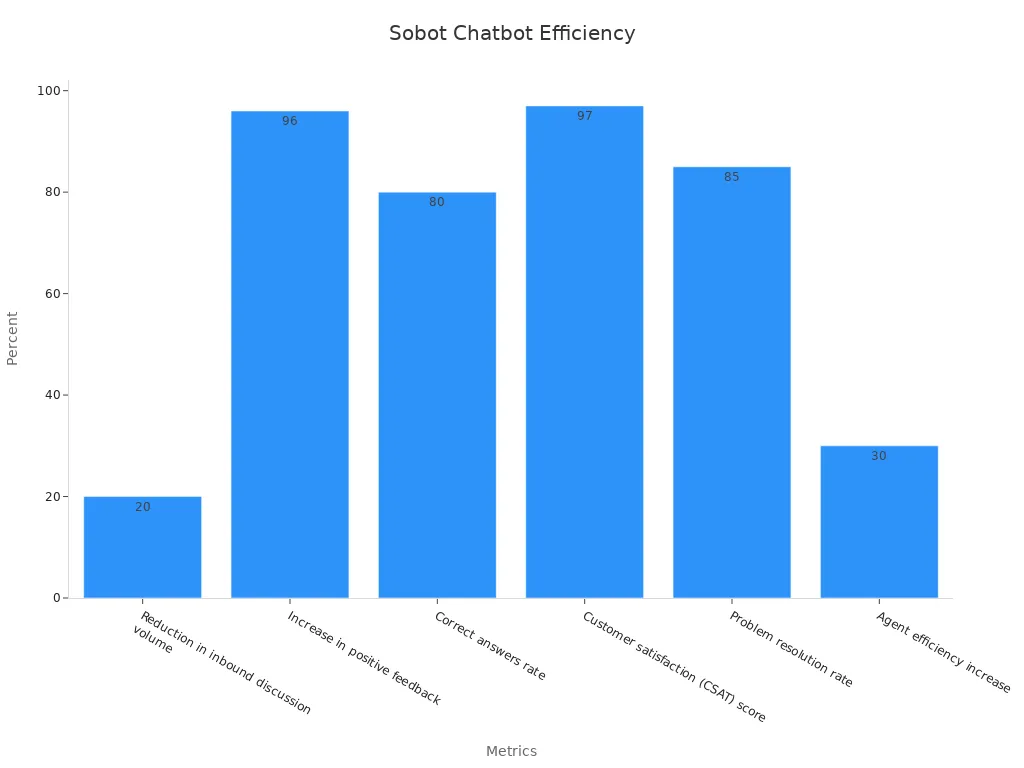
Sobot's chatbot ensures seamless integration with existing systems, making it easy for businesses to adopt. Its intuitive interface requires no coding, allowing you to deploy it quickly. By automating repetitive tasks, Sobot's chatbot reduces costs and enhances operational efficiency, making it a valuable asset for healthcare providers and other industries.
Emerging Trends in Healthcare Chatbot Technology for 2025
The healthcare industry is witnessing rapid advancements in AI chatbot technology. These emerging trends are reshaping patient care, making it more personalized, efficient, and accessible. By 2025, healthcare chatbots are expected to evolve into Virtual Health Assistants, offering tailored support and automating patient interactions. The global healthcare chatbot market is projected to grow from $195.85 million in 2022 to $1168 million by 2032, highlighting their increasing adoption.
Hyper-Personalization in Medical AI Chatbots
Hyper-personalization is transforming how you interact with healthcare providers. AI-powered chatbots analyze complex patient data to deliver personalized treatment recommendations. This approach strengthens patient-provider relationships, leading to better satisfaction and health outcomes. For example, platforms like Lirio use advanced behavior models to automate targeted communications, encouraging proactive health management.
Patients increasingly prefer personalized care. According to the 2024 National Consumer Healthcare Survey, 50% of patients favor direct engagement with their primary care providers. Medical AI chatbots address this demand by tailoring responses based on your medical history, preferences, and real-time needs. Sobot's chatbot excels in this area, offering multilingual support and seamless integration with electronic health records (EHRs). These features ensure you receive accurate, personalized assistance anytime.
Did you know? Hyper-personalized chatbots can improve patient engagement by 30%, fostering stronger connections between patients and healthcare providers.
Multimodal AI for Enhanced Patient Communication
Multimodal AI is revolutionizing patient communication by integrating various data types, such as medical images, patient records, and lab results. This capability allows chatbots to provide more accurate diagnoses and treatment plans. For instance, AI can analyze an X-ray alongside your medical history to detect anomalies and predict disease progression.
This trend enhances the overall care process. By combining text, voice, and visual data, multimodal AI ensures you receive comprehensive support. Imagine a chatbot that not only answers your questions but also interprets your lab results and explains them in simple terms. Sobot's chatbot leverages multimodal AI to deliver such advanced functionalities, making healthcare interactions more intuitive and effective.
Tip: Multimodal AI chatbots improve diagnostic accuracy by up to 25%, ensuring you get the right care at the right time.
Integration with Predictive Analytics and Big Data
Predictive analytics and big data are key drivers of innovation in healthcare chatbots. These technologies enable chatbots to analyze historical data, identify patterns, and make data-backed predictions. For example, a chatbot can predict potential health risks based on your lifestyle and medical history, allowing you to take preventive measures.
By 2025, AI will power 95% of customer interactions, including live phone and online conversations. Chatbots are also expected to save businesses over $8 billion annually by 2024. This efficiency benefits both patients and providers. Sobot's chatbot integrates predictive analytics to offer real-time insights, helping healthcare providers make informed decisions. Its ability to process large datasets ensures accurate and timely responses, enhancing the overall patient experience.
Note: 69% of consumers prefer AI-driven support for its quick responses and availability, making predictive analytics a game-changer in healthcare.
Voice-Enabled Chatbots for Accessibility
Voice-enabled chatbots are transforming healthcare by making services more accessible to everyone, especially individuals who face challenges with traditional methods of communication. These chatbots use advanced voice recognition technology to interact with users, providing a seamless and intuitive experience. They are particularly beneficial for elderly patients and individuals with disabilities, as the voice interface eliminates the need for complex navigation or typing.
- Elderly patients often struggle with digital interfaces. Voice-enabled chatbots simplify their experience by allowing them to speak naturally and receive immediate assistance.
- Individuals with disabilities, such as visual impairments, benefit from the hands-free interaction these chatbots offer.
- Patients in remote areas gain access to healthcare services through voice AI, overcoming barriers like limited internet connectivity or lack of nearby medical facilities.
These chatbots also support telemedicine by collecting initial patient data and performing symptom checks. This capability ensures that healthcare providers receive accurate information before consultations, saving time and improving care quality. Additionally, multilingual support increases inclusivity, enabling patients to communicate in their preferred language. This feature ensures that language barriers do not hinder access to essential healthcare services.
Voice-enabled chatbots represent a significant step forward in ai chatbot trends. They enhance accessibility, improve patient engagement, and ensure that healthcare services reach underserved populations. By integrating these tools into healthcare systems, providers can create a more inclusive and efficient environment for all.
Emotional Intelligence in Healthcare Chatbots
Emotional intelligence is becoming a critical component of healthcare chatbots. These AI tools are now designed to understand and respond to patients' emotional states, creating a more empathetic and supportive interaction. Studies show that advanced AI models, such as ChatGPT, excel in emotional awareness evaluations. For instance, ChatGPT achieved a Z score of 2.84 in its first emotional intelligence test and improved to 4.26 in the second. This demonstrates its ability to recognize and adapt to emotional cues effectively.
Healthcare chatbots with emotional intelligence can identify when a patient feels anxious, stressed, or confused. They adjust their responses to provide reassurance and clarity. For example, a chatbot assisting a patient with a chronic illness might detect frustration in their tone and offer encouraging words or suggest relaxation techniques. This personalized approach fosters trust and improves the overall patient experience.
The integration of emotional intelligence aligns with the growing demand for personalization in healthcare. Patients value interactions that feel human and tailored to their needs. By incorporating emotional intelligence, chatbots not only enhance communication but also contribute to better health outcomes. They create a supportive environment where patients feel understood and cared for, making them an essential part of modern ai chatbot trends.
Challenges and Considerations in Implementing AI Chatbots
Ensuring Data Security and Privacy Compliance
When implementing AI chatbots in healthcare, ensuring data security and privacy compliance is critical. These chatbots handle sensitive patient information, making robust security measures essential. You must prioritize compliance with regulations like GDPR, HIPAA, and CCPA to avoid penalties and protect patient trust.
Key strategies include:
- End-to-End Encryption: This protects communication between you and the chatbot, ensuring confidentiality.
- Data Minimization: Collect only the necessary data to reduce breach risks.
- User Consent Mechanisms: Transparency in data collection builds trust.
- Anonymization of Data: Alter identifiable information to protect personal identity.
- Multi-Factor Authentication (MFA): Add verification steps to secure sensitive data.
- Regular Security Audits: Identify vulnerabilities proactively.
For example, healthcare providers encrypt patient data during transmission and storage, ensuring unauthorized access is prevented. Sobot’s AI chatbot integrates secure APIs and conducts regular audits, making it a reliable choice for maintaining data security.
Addressing Ethical Concerns in AI Decision-Making
AI chatbots in healthcare must address ethical concerns to ensure equitable care. While these tools enhance efficiency, they can unintentionally worsen disparities. For instance, studies show that biased algorithms may lead to unequal treatment for marginalized groups.
Transparency is vital. You need to understand how AI makes decisions to maintain trust. Explainable AI ensures that healthcare providers can interpret chatbot recommendations. This approach aligns with ethical standards and fosters accountability.
Sobot’s chatbot prioritizes ethical AI practices by using advanced algorithms designed to minimize bias. Its ability to provide multilingual support ensures inclusivity, making healthcare accessible to diverse populations.
Overcoming Integration Barriers with Existing Systems
Integrating AI chatbots with existing healthcare systems can be challenging. Legacy systems often lack the flexibility to support modern AI tools. You may face difficulties in syncing chatbots with electronic health records (EHRs) or other platforms.
To overcome these barriers, use secure APIs and ensure compatibility with your current infrastructure. Regular testing and optimization are essential for seamless integration. Sobot’s chatbot simplifies this process with its no-coding-required interface and robust integration capabilities. It connects effortlessly with EHRs, enabling smooth data exchange and enhancing operational efficiency.
By addressing these challenges, you can unlock the full potential of AI chatbots in healthcare, improving both patient care and system efficiency.
Building Patient Trust and Adoption
Building trust is essential for the successful adoption of AI chatbots in healthcare. Patients need confidence in the chatbot’s accuracy, empathy, and reliability. When you interact with a chatbot, you expect it to provide precise answers, understand your concerns, and respond quickly. Tailored evaluation metrics like trustworthiness, computing performance, and empathy ensure that chatbots meet these expectations.
Surveys reveal how trust influences adoption. For instance, a study involving 607 respondents showed that trust significantly impacts both intent to use and actual usage. The table below highlights key findings:
| Metric | Value |
|---|---|
| Respondents | 607 |
| Intent to Use Variance | 50.5% |
| Actual Use Variance | 9.8% |
| Trust on Intent | β=0.711 (95% CI 0.656-0.764) |
| Trust on Actual Use | β=0.302 (95% CI 0.229-0.374) |
These results demonstrate that trust plays a pivotal role in bridging the gap between intent and actual usage. Chatbots that prioritize empathy and accuracy foster stronger patient relationships, encouraging adoption.

Sobot’s chatbot excels in building trust. Its multilingual support ensures inclusivity, while its seamless integration with healthcare systems guarantees accurate responses. By offering 24/7 availability and proactive messaging, Sobot’s chatbot creates a reliable and empathetic experience for patients.
Tip: Patients are more likely to adopt chatbots that demonstrate empathy and deliver consistent, accurate information.
How Sobot Ensures Seamless Implementation of Chatbot Solutions
Sobot simplifies the implementation of AI chatbots for healthcare providers. Its no-coding-required interface allows you to deploy the chatbot quickly, even if you lack technical expertise. The chatbot integrates effortlessly with electronic health records (EHRs), ensuring smooth data exchange and personalized patient interactions.
Sobot’s implementation process prioritizes efficiency. It begins with integrating the chatbot into your existing systems, followed by configuring workflows to match your needs. Training sessions help your staff understand the chatbot’s functionalities, ensuring a smooth transition. Regular monitoring and optimization ensure the chatbot performs effectively, adapting to your requirements over time.
For example, Sobot’s chatbot can automate appointment scheduling, symptom checking, and medication reminders. These features reduce administrative burdens and improve patient satisfaction. Its multilingual support ensures accessibility for diverse populations, while its advanced algorithms enhance decision-making processes.
By choosing Sobot, you gain a reliable partner that supports you throughout the implementation journey. Its intuitive design and robust capabilities make it an ideal solution for modern healthcare systems.
Did you know? Sobot’s chatbot improves operational efficiency by 70%, allowing healthcare providers to focus on critical care.
AI chatbot solutions are reshaping healthcare by improving patient care and operational efficiency. These tools simplify processes, enhance accessibility, and ensure you receive timely support. They empower healthcare providers to focus on critical tasks while automating routine operations. This transformation leads to better patient care and satisfaction.
Sobot's chatbot stands out as a leader in this innovation. Its multilingual support, 24/7 availability, and seamless integration with healthcare systems make it an essential tool for modern healthcare providers. By adopting Sobot's chatbot, you can enhance patient care, reduce costs, and improve overall efficiency.
To successfully implement AI chatbot technology, start by identifying your specific needs. Choose a solution that integrates easily with your existing systems. Train your team to maximize the chatbot's potential. Regularly monitor its performance to ensure it continues to meet your goals. With the right approach, you can revolutionize patient care and stay ahead in the evolving healthcare landscape.
FAQ
What is the main purpose of healthcare chatbots?
Healthcare chatbots aim to improve patient care and operational efficiency. They automate routine tasks like appointment scheduling, symptom checking, and medication reminders. These tools also provide 24/7 support, ensuring you receive timely assistance while reducing the workload on healthcare providers.
How do AI chatbots ensure data security?
AI chatbots use advanced security measures like end-to-end encryption and data anonymization. These features protect your sensitive information during communication and storage. Additionally, compliance with regulations like HIPAA and GDPR ensures your data remains safe and private.
Can chatbots replace healthcare professionals?
No, chatbots cannot replace healthcare professionals. They assist by automating repetitive tasks and providing initial guidance. However, they lack the expertise and judgment of trained professionals. You should always consult a healthcare provider for complex medical issues.
Are healthcare chatbots accessible to non-English speakers?
Yes, many healthcare chatbots, including Sobot's, offer multilingual support. This feature allows you to communicate in your preferred language, ensuring accessibility for diverse populations. It eliminates language barriers and makes healthcare services more inclusive.
How can Sobot's chatbot benefit healthcare providers?
Sobot's chatbot enhances efficiency by automating routine tasks and reducing costs. It integrates seamlessly with healthcare systems, providing accurate, real-time responses. Its 24/7 availability ensures uninterrupted support, improving patient satisfaction and allowing providers to focus on critical care.
See Also
Enhancing Customer Satisfaction Through E-commerce Chatbots
Simple Steps to Implement Chatbots on Your Website
Selecting the Ideal Chatbot Software for Your Needs